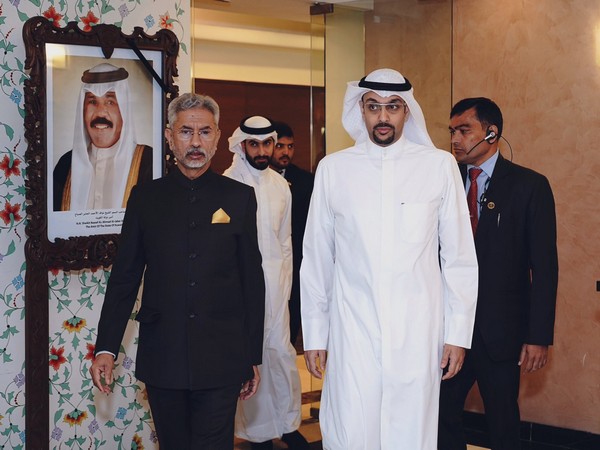External Affairs Minister S Jaishankar, visited the Embassy of Kuwait in Delhi Monday morning to express condolences and pay respects following the passing of Sheikh Nawaf Al-Ahmad Al-Jaber Al-Sabah, the Emir of the State of Kuwait.
Minister Jaishankar shared his sentiments on social media, stating, “Visited the Embassy of Kuwait in Delhi today morning to express condolences and pay my respects on the passing away of His Highness Sheikh Nawaf Al-Ahmad Al-Jaber Al-Sabah, the Amir of the State of Kuwait. The Government and people of India will always remember his notable contributions to the strengthening of our ties.”
As a mark of solidarity and friendship, Minister Jaishankar conveyed India’s condolences to the Embassy staff and signed the official condolence book. The Minister highlighted the significant contributions made by the late Amir in fostering cooperation and understanding between the two nations.
The demise of Sheikh Nawaf Al-Ahmad Al-Jaber Al-Sabah is widely mourned, not only within Kuwait but also by the international community
Notably, state mourning across the country on Sunday was declared by the Indian government as a mark of respect for the departed leader.
The Indian Tricolour was also flown at half-mast at all buildings of Indian high commissions, embassies, consulates and India Houses all over the world. All official entertainment activities were cancelled.
Prime Minister Narendra Modi too expressed condolences saying that he is “deeply saddened” to learn about the unfortunate demise of the Emir of Kuwait.
In a post on X, PM Modi wrote, “Deeply saddened to learn about the unfortunate demise of His Highness Sheikh Nawaf Al-Ahmed Al-Jaber Al-Sabah. We convey our deepest condolences to the royal family, the leadership and the people of Kuwait.”
Kuwait Emir Sheikh Nawaf al-Ahmad al-Jaber al-Sabah died at the age of 86 on Saturday, Al Jazeera reported.
He was laid to rest in a private ceremony on Sunday, Al Jazeera reported.
The state television also broadcasted a prayer ritual at the Bilal bin Rabah mosque in Kuwait City and a burial procession to the Sulaibikhat cemetery for the emir, both of which were attended by only the royal family. (ANI)
For more details visit us: https://lokmarg.com/


